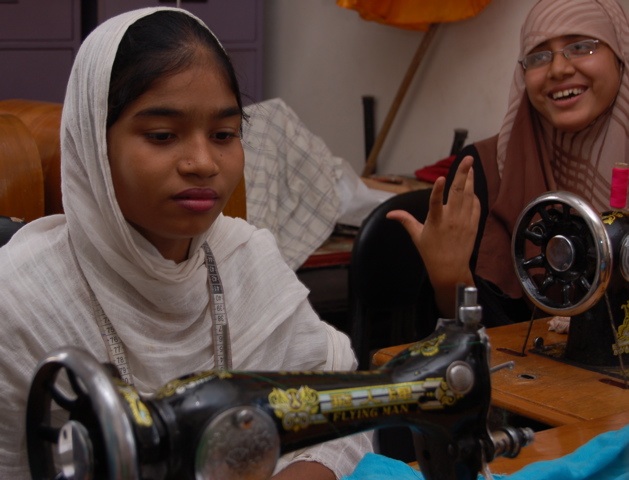Although almost two thirds of the laborers in Bangladesh work in agriculture, according to the Bangladeshi Labor Force Survey 2000, there is no minimum pay, no regulated access to health care, and no equal pay between men and women for them. Despite Bangladesh's largely agrarian economy and labor laws for industrial and governmental workers, agricultural workers have no legal support. Among them roughly half are women but they do 90% of the work says Rahela Rabbani, a project coordinator at the non-governmental organization Karmojibi Nari in Dhaka. "As they are women their work doesn't count," she says. "Often they are not paid in money but food."
Karmojibi Nari, which means "working women" fights for a law for agricultural workers. Since 1991, Karmojibi Nari educates especially women who work in agriculture about women's rights, human rights, and the constitution because women are always less informed, says Karmojibi Nari General Secretary Shirin Akhter. After coming home from work, there is little time to obtain such information, she says. "It is difficult to create an environment for them to learn in a male-dominated chauvinistic climate," she adds. "Women don't feel supported."
On one hand Karmojibi Nari lobbies at the political level to create a law, on the other hand its workers train women to organize themselves and to become leaders in their communities in four of the six administrative divisions of Bangladesh. They start on the grassroots level with small groups called cells. Each cell consists of 25 to 30 members.
Since 2005 Karmojibi Nari works in the district of Manikganj, west of Dhaka. By now 88 cells exist. Since January 2009 three cells have gathered in the 600-people village of Kosavanga, two for women and one for men. Stine Eckert has visited Kosavanga and its women.




